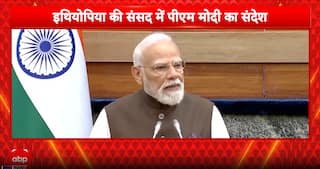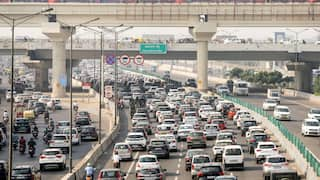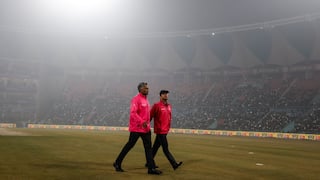Japan Approves Biggest Military Build-Up Since World War II To Counter Growing 'Challenge' From China: Report
Japan plans to raise defence expenditure to 2% of GDP over the next five years, breaking with its postwar vow to keep spending at 1% of GDP.

Japan has approved its largest military buildup since World War II, declaring that China posed the "greatest strategic challenge ever" and laying out plans for a counter-strike capability supported by record defence spending, The Guardian reported.
The government's plans, revealed on Friday, reflect rising concern over a more aggressive Chinese military and a North Korean state that continues to strengthen its nuclear and ballistic missile capabilities.
However, the reforms have sparked accusations that Japan is forsaking more than seven decades of pacifism under the terms of its postwar constitution.
Japan plans to raise defence expenditure to 2% of GDP over the next five years, breaking with its postwar vow to keep spending at 1% of GDP.
The rise would bring it in line with Nato members and make it the world's third-largest defence spender behind the United States and China.
Japan will also obtain new weapons capable of striking enemy sites 1,000 kilometres away with land or sea-launched missiles, a move that some feel breaches the country's war-renouncing constitution.
Article 9 of the constitution, drafted by US occupation troops during WWII, condemns war and prohibits Japan from employing force to settle foreign problems. Its military, known as self-defense forces, is exclusively defensive in nature. However, some argue that this has left Japan unable to deal with current security concerns presented by China and North Korea.
While Japanese voters have typically been suspicious of direct constitutional amendment, popular support for a more muscular military has surged in the aftermath of the Ukraine conflict and amid worries that a Chinese invasion of Taiwan may endanger Japan's security.
According to one of the documents, the national security strategy, Japan is facing "the most severe and complicated national security environment since the end of the war," and China is the "greatest strategic challenge ever to securing Japan's peace and stability," as well as a "serious concern" for Japan and the international community.
Rahm Emanuel, the US ambassador in Tokyo, praised the initiatives as a "momentous milestone" in US-Japan ties and in achieving a "free and open Indo-Pacific."
Plans to empower Japan's self-defense forces to carry out counter-strikes on enemy bases overseas have also sparked debate, with some claiming that such a capacity is necessary to offset the potential danger presented by North Korean missiles.
The Japanese government has changed what is known as a preemptive strike to "counterstrike capacity," presumably to emphasise that it would only be utilised in self-defense if the country was presented with indicators of an impending assault.
Despite a complex phrasing of the policy, the fundamental danger is China, for which Japan has had to prepare "by using North Korea's threat as a cover", said Tomohisa Takei, a retired marine self-defence force officer.
Despite official agreement on the nature and severity of Japan's security concerns, the ruling Liberal Democratic Party is divided on how to fund an increase in defence spending.
The prime minister, Fumio Kishida, has rejected requests to utilise government bonds to help pay for the expected $43 trillion ($320 billion) defence spending over the next five years, instead electing to risk on tax increases that his party and its junior coalition partner, Komeito, agreed on Friday.
However, the tax rises may be controversial. According to a Fuji TV poll conducted this month, 66% of respondents rejected raising taxes to fund a larger military.
According to media estimates, money would be spent on improving Japan's missile defence and purchasing up to 500 US-made Tomahawk missiles. According to the Yomiuri Shimbun newspaper, it plans to deploy more than 1,000 long-range cruise missiles capable of reaching North Korea or Chinese coastal areas.






































